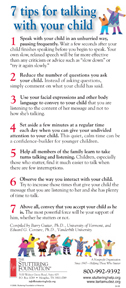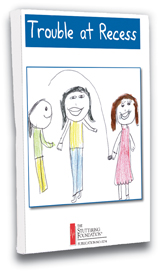Does My Child Need Therapy for Stuttering
Written by Lisa A. Scott, Ph.D.
Should My Child Attend Speech Therapy?
Stuttering can become a lifelong part of talking for some people. However, it does not have to interfere with your child's ability to make friends, participate in the classroom, make good grades, form lasting relationships, or achieve career goals.






 Podcast
Podcast Sign Up
Sign Up Virtual Learning
Virtual Learning Online CEUs
Online CEUs Streaming Video Library
Streaming Video Library



